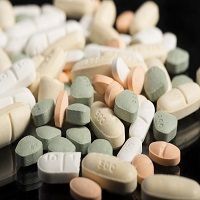Tuberculosis Drug Effective At Lower than Prescribed Doses
An effective, yet toxic tuberculosis (TB) drug can be decreased and combined with a well-known heart medication for the same results, researchers from John Hopkins University School of Medicine reported.

An effective, yet toxic tuberculosis (TB) drug can be decreased and combined with a well-known heart medication for the same results, researchers from John Hopkins University School of Medicine reported.
Published in the January issue of Antimicrobial Agents and Chemotherapy, investigators found, administering smaller doses of bedaquiline, a TB medication coupled with a heart medication called verapamil had the same impact as simply using larger amounts of bedaquiline.
According to a statement, although the 2-year-old breakthrough drug— which inhibited a key enzyme used by the TB bacteria to spread throughout the body—was deemed effective, it could cause significant damage to the heart and liver.
For their study, the investigators gave verapamil and a lower than average dose of bedaquiline to TB mice models. In doing so, they noticed the combination allowed the mice to remove mycobacteria and their mutated forms.
“Using a mouse model of tuberculosis, we have shown lower doses of bedaquiline together with verapamil have the same antibacterial effect as the higher toxic doses,” Shashank Gupta, PhD, a research fellow at Johns Hopkins and the study’s contributor said. “Shortening treatment regimens and reducing the required doses may be a promising strategy to reduce the incidence of bedaquiline-related adverse effects and thereby improve multidrug-resistant TB treatment outcomes.”
“The adjunctive use of verapamil may permit use of lower doses of bedaquiline to be used and thereby reduce its dose-related toxicities in tuberculosis patients,” announced the scientists.